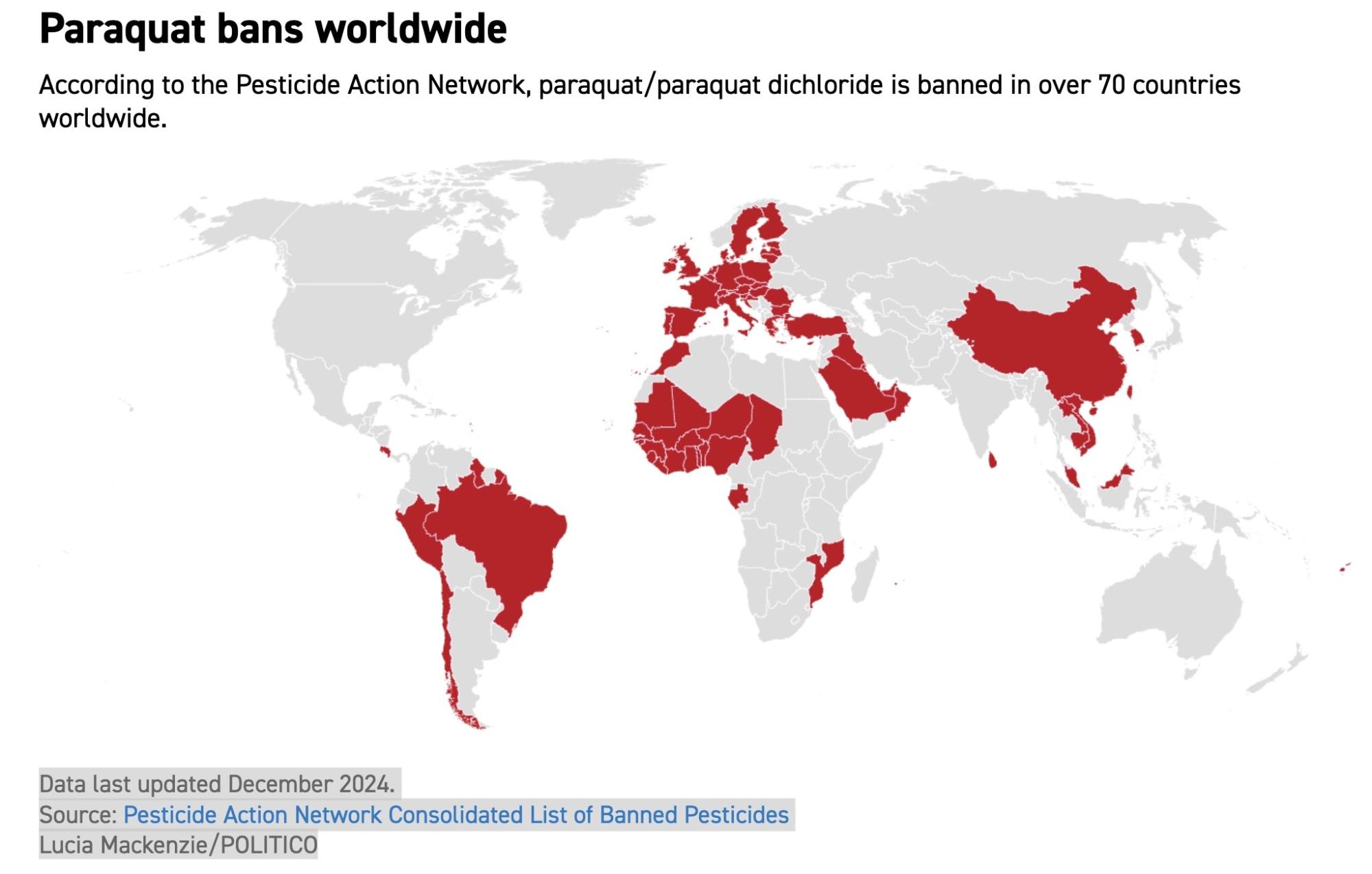Related Stories
‘Parkinson’s is a man-made disease’
Key Excerpts from Article on Website of Politico

Posted: April 30th, 2025
https://www.politico.eu/article/bas-bloem-parkinsons-pestici...
In the summer of 1982, seven heroin users were admitted to a California hospital paralyzed and mute. They were in their 20s, otherwise healthy — until a synthetic drug they had manufactured in makeshift labs left them frozen inside their own bodies. Doctors quickly discovered the cause: MPTP, a neurotoxic contaminant that had destroyed a small but critical part of the brain, the substantia nigra, which controls movement. The patients had developed symptoms of late-stage Parkinson’s, almost overnight. Until then, Parkinson’s was thought to be a disease of aging, its origins slow and mysterious. But here was proof that a single chemical could reproduce the same devastating outcome. And more disturbing still: MPTP turned out to be chemically similar to paraquat, a widely used weedkiller that, for decades, had been sprayed on farms across the United States and Europe. Parkinson’s disease has more than doubled globally over the past 20 years, and is expected to double again in the next 20. It is now one of the fastest-growing neurological disorders in the world. In a 2024 paper co-authored with U.S. neurologist Ray Dorsey, [Bas] Bloem wrote that Parkinson’s is “predominantly an environmental disease” — a condition shaped less by genetics and more by prolonged exposure to toxicants like air pollution, industrial solvents and, above all, pesticides. “Parkinson’s was a very rare disease,” Bloem says. “Then with the ... explosion of pesticide use, rates started to climb.”
Note: For more along these lines, read our concise summaries of news articles on health and toxic chemicals.
Related Stories
Latest News
Key News Articles from Years Past

























































































